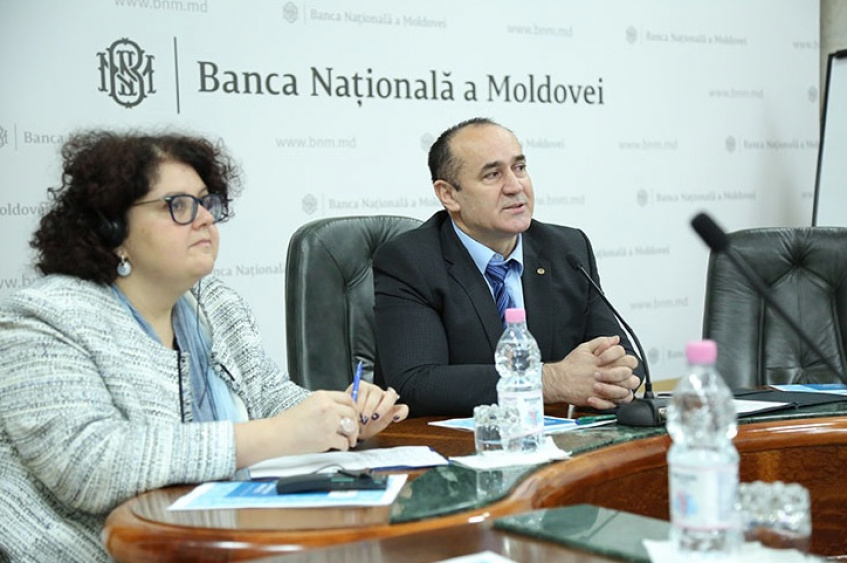
A two-and-a-half day workshop designed for banking supervisory staff was held in Chisinau between 5 and 7 December, as part of the EU4Business STAREP project on 'Strengthening Auditing and Reporting in the Eastern Partnership'.
Speakers included senior staff from the World Bank’s Centre for Financial Reporting Reform, experts in accounting standards, as well as representatives of commercial banks and audit firms from Moldova.
The event helped participants from the National Bank of Moldova (NBM) to enhance their understanding of accounting for financial instruments and other items, in accordance with new International Financial Reporting Standards (IFRS).
The new IFRS 9 Financial Instruments has been effective from January 1, 2018, for all entities reporting under the IFRS, including commercial banks from the Republic of Moldova. This new standard is the most significant change over the last years in accounting for financial instruments, fundamentally redrafting the accounting rules, replacing the incurred loss impairment model with a more forward-looking expected loss model, as well as bringing a new methodology for financial instruments classification.
Consequently, it is essential that supervisors can confidently engage with financial information prepared in accordance with IFRS in general, and IFRS 9 in particular, and understand their role in monitoring and supervision. The introduction of IFRS 9 significantly narrowed the gap between supervisory and accounting approaches to loan loss provisioning, thus enabling the reliance on the work of bank external auditors in supervisory practices and facilitating more effective application of a risk-based supervisory model. The introduction of IFRS 9 was also crucial for proper provisioning and resolution of non-performing assets, which on its own is one of the major impediments for bank credit growth and consequent economic development.
The workshop also covered governance issues in the banking sector including auditors’ appointment and dismissal and roles of audit committees, as well as the relationship between auditors and supervisors.
Over 40 representatives from various departments including the Department of Banking Supervision and Department of Reporting and Statistics, as well as members of the Audit Committee of the National Bank of Moldova, took part in this workshop to gain a better understanding of the transition to IFRS 9 and the challenges it poses for key stakeholders.
The EU4Business STAREP programme (Strengthening Auditing and Reporting in the Eastern Partnership) is an EU-funded regional programme implemented by the World Bank’s Centre for Financial Reporting Reform (CFRR) for Armenia, Azerbaijan, Belarus, Georgia, the Republic of Moldova and Ukraine. STAREP helps participating countries to modernise corporate financial reporting frameworks and raise the capacity of local institutions to implement these frameworks effectively.
